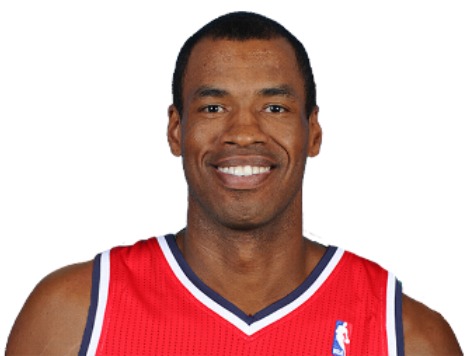
The insinuation by CNN’s Carol Costello that Vikings punter Chris Kluwe was cut for supporting gay marriage followed a statement by Amanda Terkel of the Huffington Post asking if there was a Branch Rickey willing to sign Jason Collins after he came out as gay so that “young athletes around the country would get to watch a publicly gay basketball player on the court on a regular basis.” The problem is that most people watch sports to see their team win, and stats show that Collins simply makes his team more likely to lose when he plays.
Stats do not show whether a player is straight, gay, liberal, conservative. They do not even reveal a player’s race. Coaches and general managers have no margin for error to be distracted by such things, as they have to put the players on the court who will let them keep their jobs by producing wins. According to John Hollinger’s Value Added equations, Jason Collins was one of only 17 players (out of 469) to cost his team more than 40 points by playing this season, and at 35 years old no GM could justify paying him $1.3 million again next year or likely justify having him on the roster IF he is being evaluated on a level playing field with straight players competiting for the same roster spot.
This is not to say Collins has had a great run in the NBA. He has earned over $30 million, most of it as a result of the one season in which he averaged just a little more than six points and six rebounds per game. His four years at Stanford likely prepared him for a secure lifetime after basketball even before the attention and praise he received since announcing he was gay.
While he has never been a very good center compared to an average NBA player, the fact is only 1% of college players make it to the NBA at all, and to be good enough to stay in the league for more than a decade is a very rare feat.
One might argue that there are players rated even lower by Hollinger, including Doc Rivers’s son Austin Rivers, who has the lowest ranking of any player in the league. However, GMs also know that players tend to improve every season until they are about 27, then stay at that level for a few years before starting to decline. Rivers should improve for seven years and is still worth an endorsement, but Collins actually peaked a little early at the age of 26, and statistically has not been worth a $1-million-plus contract for a few years now.
If Collins had announced he was gay at 26 years old, he would have still received a big contract. If he had continued to improve to build on his 6.1 rebounds and 6.4 points per game at the age of 26, he might have been worth the $5.5 million per year and up he received for each of the next four years. In fact, he was overpaid for what he produced those four seasons, and has been back making just over a million a year ever since.
Certainly a GM can sign Collins for the reasons Terkel suggests, or because he is a great teammate as Doc Rivers has stated, but if he is not signed it will simply be because there was not a team that was going to be helped more by a 36-year-old who might not average a point or a rebound a game. His stats and salaries for Collins according to the basketball reference follow:
| Season | Team | Salary | Age | G | Reb | PTS |
|---|---|---|---|---|---|---|
| 2001-02 | New Jersey Nets | $1,067,400 | 23 | 77 | 3.9 | 4.5 |
| 2002-03 | New Jersey Nets | $1,147,440 | 24 | 81 | 4.5 | 5.7 |
| 2003-04 | New Jersey Nets | $1,227,480 | 25 | 78 | 5.1 | 5.9 |
| 2004-05 | New Jersey Nets | $1,887,864 | 26 | 80 | 6.1 | 6.4 |
| 2005-06 | New Jersey Nets | $5,500,000 | 27 | 71 | 4.8 | 3.6 |
| 2006-07 | New Jersey Nets | $5,800,000 | 28 | 80 | 4.0 | 2.1 |
| 2007-08 | Memphis Grizzlies | $6,100,000 | 29 | 74 | 2.4 | 1.9 |
| 2008-09 | Minnesota Timberwolves | $6,200,000 | 30 | 31 | 2.3 | 1.8 |
| 2009-10 | Atlanta Hawks | $1,181,803 | 31 | 24 | 0.6 | 0.7 |
| 2010-11 | Atlanta Hawks | $1,352,181 | 32 | 49 | 2.1 | 2.0 |
| 2011-12 | Atlanta Hawks | $1,352,181 | 33 | 30 | 1.6 | 1.3 |
| 2012-13 | Washington Wizards | $1,352,181 | 34 | 38 | 1.6 | 1.1 |
| 713 | 3.8 | 3.6 |

COMMENTS
Please let us know if you're having issues with commenting.